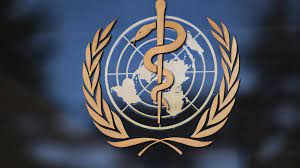Recognizing World Humanitarian Day 2021, the International Narcotics Control Board (INCB), the United Nations Office on Drugs and Crime (UNODC) and the World Health Organization (WHO) once again call on governments to facilitate access to medicines containing controlled substances in emergency settings, including during pandemics and the increasing number of climate-related disasters.
The theme of World Humanitarian Day 2021 acknowledged the impact of climate-related emergencies. Over 7,348 disasters have been reporting in the last two decades of which 40% are now estimated to be climate-related according to United Nations reports. The impact of their increasing number combined with the persistent COVID-19 pandemic creates a complex landscape for ensuring access to controlled medicines in emergencies.
A year after an earlier joint statement, unprecedented trade restrictions, shortages of medicines, surges in infections and new variants of SARS-CoV-2 compound the problems related to maintaining supply of controlled medicines, according to WHO and the World Trade Organization.
The problem of access to controlled medicines in emergencies
There is an increase in demand for controlled medicines in emergency responses. Since the beginning of the COVID-19 pandemic, WHO has identified over 20 medicines with global-level shortages, including four that contain controlled substances that are used in intensive care units for treatment of severe cases of COVID-19. Internationally controlled medicines such as morphine, diazepam and midazolam listed as WHO essential medicines, are vital for the management of pain, palliative care, surgical care and anesthesia, and treatment of drug-use disorders, mental health and neurological conditions.
Shortages impact countries of all income levels. Low- and middle-income countries (LMIC) are often disproportionately impacted by shortages–partly related to their relative purchasing power in international medicines markets and partly because specialized systems to manage controlled medicines do not always accommodate sufficient exceptions for emergencies.
Urgent action is needed to ensure that national systems improve access to controlled medicines for people affected by emergencies, including pandemics, and climate-related disasters.
Action by governments and the international community
WHO guidelines on controlled medicines in emergencies outline simplified control measures for the cross-border trade of controlled medicines during humanitarian emergencies. They have been adapted into operational terms in the Inter-Agency Emergency Health Kit guidance. These guidelines and others have been in place for many years but are not consistently or effectively used by all countries.
In the current global landscape, it is of paramount importance that relevant authorities in exporting and importing countries exercise and apply the flexibilities described in these guidelines in several key areas, such as:
- Amendments, waivers or new provisions that allow for greater flexibility in the use of control measures on controlled medicines during emergencies;
- Enhanced partnerships, including reliance on relevant humanitarian agencies to carry out certain activities on behalf of governments;
- Flexibilities that would ensure safe, timely and appropriate use of controlled medicines in emergencies, including provisional and long-term solutions.
Collaboration towards solutions
Interagency collaboration is critically important in our race against the climate crisis and humanitarian emergencies. On World Humanitarian Day, humanitarian personnel deserve our support and we honor and recognize their efforts. For those who have lost their lives working for humanitarian causes, we remember and honour the spirit of everything they have done. Our collective best effort is essential to facilitate the timely supply of controlled medicines for those in need during humanitarian crises.










